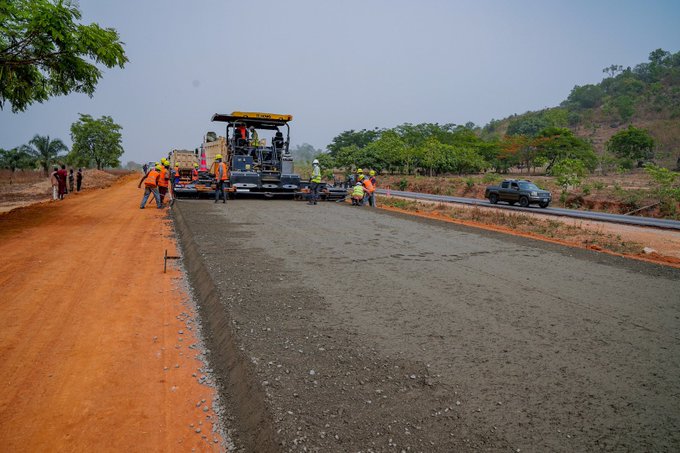The Bola Ahmed Tinubu administration has officially launched the construction of the Calabar-Abuja Superhighway, a key initiative in the government’s ongoing infrastructure renewal efforts. The signing of the agreement between Infiouest International Limited and the Ministry of Works in Abuja marks the start of the first section of the ambitious project.
Special Assistant to the President on Social Media, Dada Olusegun, confirmed the development in a statement on Wednesday, describing the project as a testament to the administration’s commitment to revitalizing Nigeria’s infrastructure.
The deal involves the first section of the Calabar-Ebonyi-Benue-Kogi-Nasarawa-Apo (Abuja) Superhighway, which will cover a stretch of 118.85 kilometers. This initial phase will focus on the reconstruction of the existing road, which currently comprises jointed asphalt concrete and laterite-surfaced pavements. The section will begin at the Enugu-Abakaliki-Ogoja Highway, a crucial part of the Africa Trans-Sahara route, and stretch through Cross River, Benue, Kogi, and Nasarawa states before terminating in Apo, the Federal Capital Territory (FCT).
In his announcement, Olusegun highlighted that this project is a vital link for trade and transportation across the central and southeastern regions of Nigeria. The Calabar-Abuja Superhighway will not only enhance regional connectivity but also improve economic activities by facilitating smoother movement of goods and people.
“The signing of agreements between Infiouest International Limited and the Ministry of Works officially begins the construction of the Calabar-Abuja Superhighway, which will play a critical role in modernizing Nigeria’s road network,” Olusegun said.
The project is an integral part of President Bola Tinubu’s broader infrastructure renewal strategy under the “Renewed Hope” initiative. The aim is to modernize the nation’s infrastructure to stimulate economic growth and improve interregional connectivity. The Calabar-Abuja Superhighway is expected to reduce travel time, improve road safety, and enhance access to vital trade routes in the region.
The road will serve as a key transportation corridor connecting the southeastern and central parts of Nigeria, which has long been a critical need for improving trade flows within the country.
In addition to the Calabar-Abuja project, Olusegun revealed that plans are already underway for the Lagos-Abuja Superhighway, another major road project that is expected to begin soon. This road will further strengthen the administration’s focus on building an integrated, efficient, and modern road network across Nigeria.
“This project is another significant step towards achieving the Renewed Hope agenda, and we are committed to ensuring its success,” Olusegun stated.
The Calabar-Abuja Superhighway will also support the development of other key infrastructure projects in the region. The road is expected to enhance the economic integration of the states it passes through, boosting commerce between Cross River, Benue, Kogi, Nasarawa, and the Federal Capital Territory. By improving access to regional markets, the superhighway will contribute to greater economic activity and job creation, particularly in the construction and transportation sectors.
The Tinubu administration has already made significant progress on other major road projects as part of its broader infrastructure vision. Work is already underway on the Sokoto-Badagry and Lagos-Calabar highways, and the Lagos-Abuja superhighway is expected to commence soon. These projects align with the government’s plan to expand and modernize the nation’s road network, facilitating easier movement of goods, services, and people across Nigeria.
The Calabar-Abuja Superhighway project, with its focus on reconstruction and modernization, is expected to transform the transportation landscape of Nigeria, improving the efficiency of road transport and contributing to the overall development of the country’s economy.

